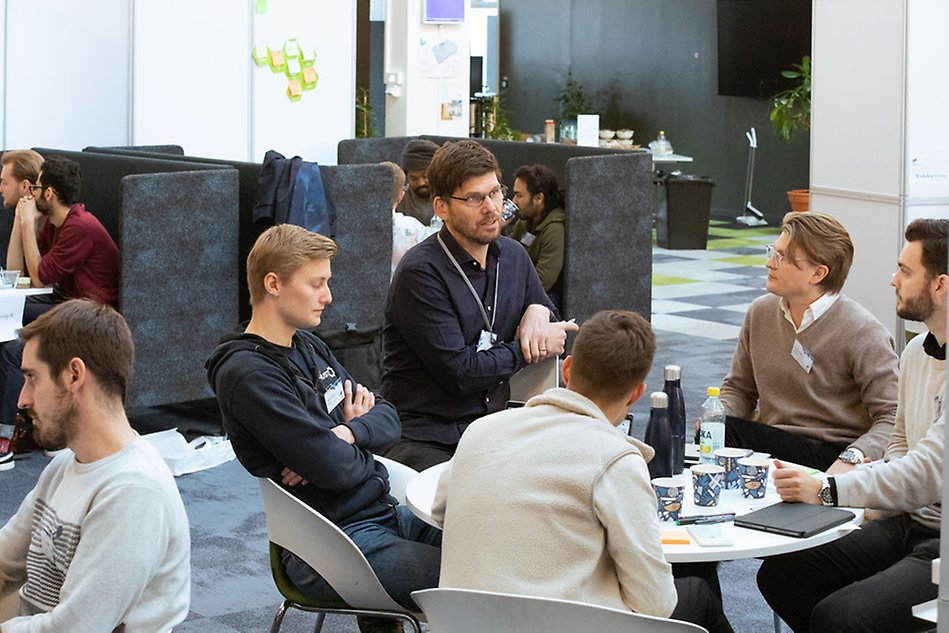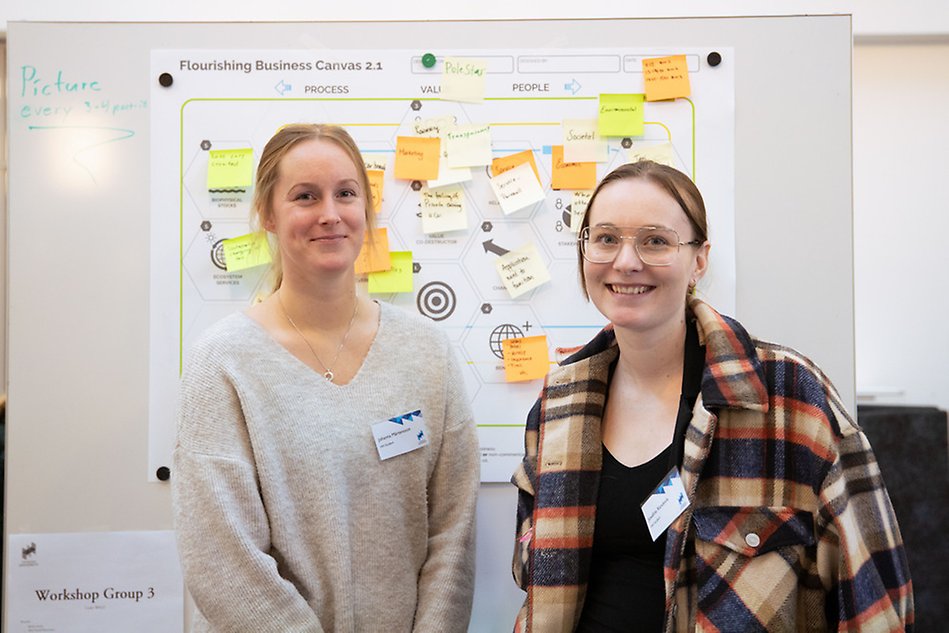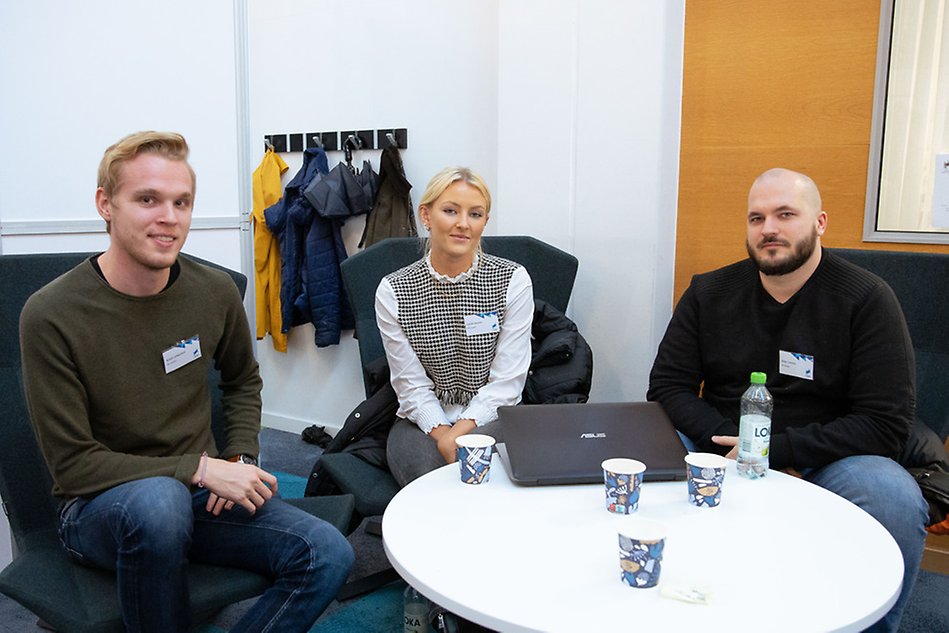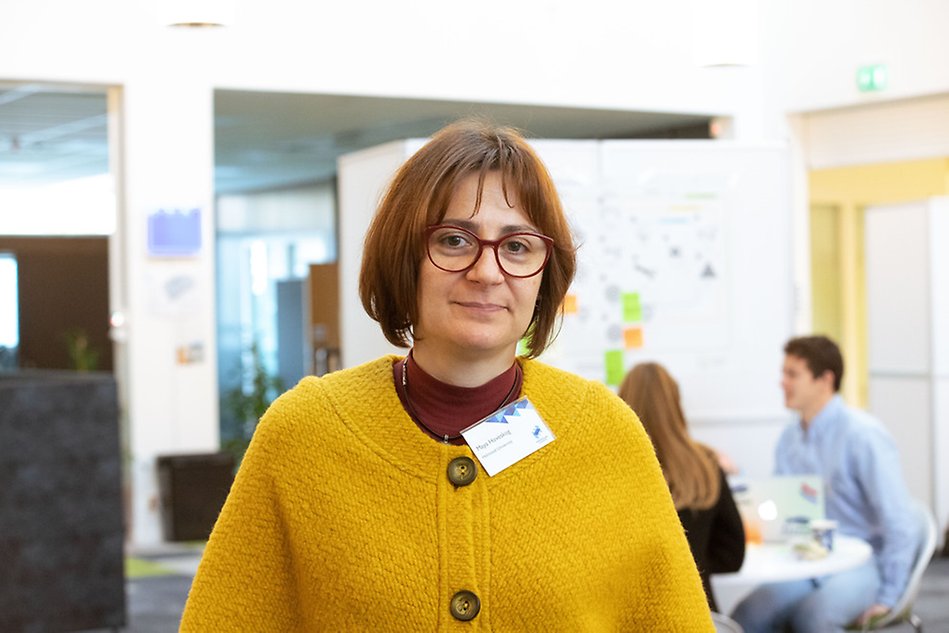New business models part of the solution for a sustainable car industry
Research, education, and collaboration combined, that was what was offered when students from different programmes met representatives from the electric car company Polestar in a workshop connected to the research project OSMaaS.
“Today we get to be consultants and come up with suggestions and give feedback on other people's ideas. It is exciting, and at the same time it complements what we are doing”
Johan Lorentz, Digital Design and Innovation
Tomas Holst, project manager for Polestar 0 Project, which aims to produce a climate-neutral car by the year 2030, has together with Maya Hoveskog, Associate Professor in Innovation Management, developed a challenge for students in the course Concurrent Product and Business Development included in the Master's Programme in Industrial Management and Innovation. As part of that initiative, Tomas Holst was invited to a workshop at Halmstad University, where students from the course, together with students from other programmes, worked with business models for future sustainability.
“We must find ways to deal with the world changing, and it can be difficult to deal with the future. It's easy to think of change, it's something someone else does. I want students to think that change is something they can do, and I want to inspire and challenge them not to seek the perfect. Not seeing the potential in students is not sustainable!”, says Tomas Holst.
After an introductory lecture, Tomas Holst gave the students a task: to give suggestions on how Polestar can develop its business model in two, five or ten years time, with a focus on the ownership phase and value creation.

Tomas Holst, project manager for Polestar 0 Project gives feedback to one of the groups.
Reality-based challenges for business model innovation
In the course Concurrent Product and Business Development, students work together with companies and take on reality-based challenges focused on sustainable business models.
“The purpose of the workshop, to which students from other programs were also invited, was to train in business model innovation and to develop sustainable business models, but also to learn to talk to others and convey their own knowledge and expertise”, says Maya Hoveskog who is responsible for the course, and continues:
“The students also practiced leading multidisciplinary discussions and using various tools that we talked about earlier in the course, for example the Flourishing Business Canvas, which is a tool for developing business models for sustainability."

Johanna Mårtensson and Josefine Randevik are both students at the Master's Programme in Industrial Management and Innovation.
Johanna Mårtensson and Josefine Randevik are both students at the Master's Programme in Industrial Management and Innovation. They appreciate the opportunity to collaborate both with students from other programmes and with companies:
“It is very rewarding to get experiences from the “real world” and meet companies, and it is an opportunity to show them who you are and what you can do. It was satisfying when Polestar told us that one of our proposals was something that they could start doing right away. It feels like we contributed today!”, says Josefine Randevik, and Johanna Mårtensson fills in:
“Working with students in other programmes gives a lot, as does getting feedback from external stakeholders. We have completely different perspectives, and nothing is right or wrong.”

Robin Johansson, Linnéa Ivetorn and Johan Lorentz, students at the programme Digital Design and Innovation.
Robin Johansson, Linnéa Ivetorn and Johan Lorentz, students at the programme Digital Design and Innovation, also feel that they really contributed during the workshop:
“Today we get to be consultants and come up with suggestions and give feedback on other people's ideas. It is exciting, and at the same time it complements what we are doing”, says Johan Lorentz. Robin Johansson agrees:
“We are part of the Active8 Planet project which is about future mobility and ownership and where we collaborate with Volvo, so the workshop is really within what we work with. Therefore, we wanted to be involved to get new perspectives and meet students from other programmes, not least master students who have a lot of experience.”

The workshop also provides an opportunity for Maya Hoveskog to do data collection for her own research, where she explores, among other things, how tools for business model innovation for sustainability can be improved.
A chance to collect research data
The workshop also provides an opportunity for Maya Hoveskog to do data collection for her own research, where she explores, among other things, how tools for business model innovation for sustainability can be improved. The collaboration with Polestar is made possible through the research project OSMaaS. The project aims to develop platforms for mobility as a service (Mobility as a service, MaaS).
Maya Hoveskog and her colleagues are working on a sub-project on business model innovation and business models for a sustainable future. The benefits of the workshop are therefore many, it is about learning, collaboration arenas, research and education – and about combining them all.
“Workshops like this is great fun! The students feel like the work is meaningful and that they add something and they get feedback directly, both from other students and the business community.”
Text: Lena Lundén
Photo: Ida Fridvall

